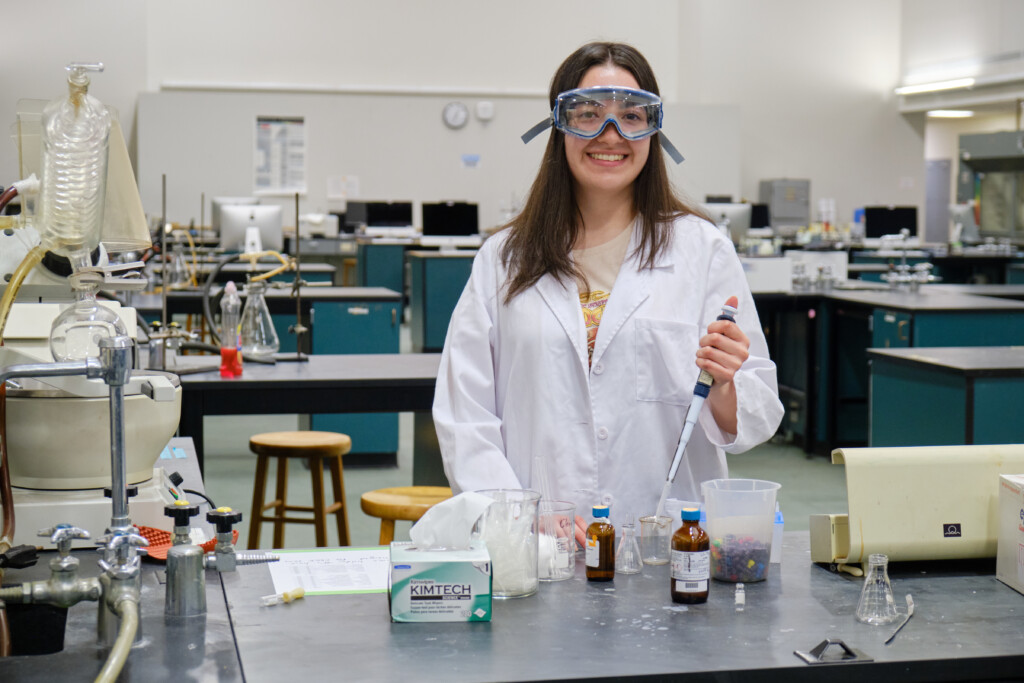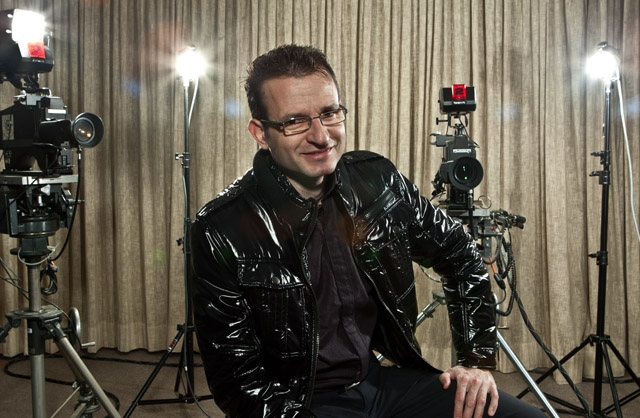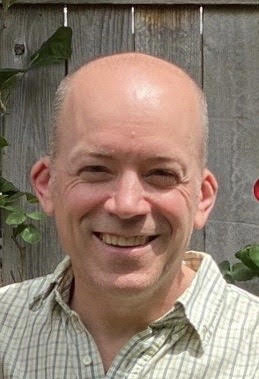Page 219 • (12,336 results in 0.047 seconds)
-
knowledge about some of the most current revelations in the fields of medicine, literature, computer science and a host of other disciplines.” The candidates recommended in the peer review are considered for awards to more than 130 programs around the world. The J. William Fulbright Foreign Scholarship Board, appointed by the U.S. president, makes the final selection of candidates. Along with her two Fulbright awards, Lisosky has taken her teaching on the road by leading more than 120 students on
-
want them to learn to do. Then you assess what they do, with clear criteria and standards. The assessment can be done via such things as: Simulations Demonstrations Team projects Explication activities (for example, in literature) Writing Some Classroom Assessment Techniques (CATs) Foundational KnowledgeHere, you just want to determine if students “understand and remember” important concepts, terminology, principles, etc. Possible Assessment Procedures: Traditional kinds of paper/pencil tests Drill
-

goal of becoming a medical professional who can help those in need, just like her mother did when she was a child. Read Previous Musician turned math major is excited to teach in his community Read Next History and literature senior aspires to be a lifelong learner LATEST POSTS YouTube Short: PLU Parkland Night Market & Taste of Garfield Street September 30, 2024 College Prep 101 Webinar: The College Essay September 23, 2024 College Prep 101 Webinar: College Applications September 23, 2024 College
-

, Religion and Literature of the Hebrew Bible. In this class, Finitsis asked his students to tell Hebrew Bible stories in whatever way they could. What he saw was “too good for no one else to see.” With that, “Hebrew Idol” was born. As part of the class, the student videos are subject to a vote, with top selections advancing to an awards show. The show includes viewings of the top selections, guest judges portraying Hebrew Bible characters, awards, hall-of-fame inductions and musical performances. It is
-
Sociology Capstone Presentations - Spring 2019 Saturday, May 18, 2019 9 a.m. – 1 p.m. Anderson University Center Schedule of Events WELCOME RECEPTION 9:00 a.m. – 9:15 a.m. CAPSTONE PRESENTATIONS 9:20 a.m. – 11:15 a.m. SENIOR CLASS PHOTO 11:20 a.m. – 11:30 a.m. LIGHT REFRESHMENTS 11:20 a.m. – 11:30 a.m. AWARDS, HONORS, & RECOGNITIONS 11:30 a.m. – 12:00 p.m. Presentations Capstone Presentations 1 9:20 a.m. - 10:20 a.m.Anderson University Center, #213Education and InequalityMorgan HanseenChristina
-
fairs? Where do I get computer help? Where can I find updates about the Coronavirus? Upcoming Events loading events... All Events News loading news... All News ePass Apps Bookmarks ePass Apps Gmail Banner Care Form Sakai WordPress Calendar I&TS Help Desk I&TS Bookmarked Pages Bookmark your favorite pages for quick and easy navigation throughout the site. [Load from ePass] Button: Sign into ePass and load your saved favorites. This allows you to keep your favorites for any browser you are signed into
-

guitar ensemble arrangements include works by John Coltrane, Angelo Debarre, Duke Ellington, and Artie Shaw. Since 2009 he has performed with PLU colleague Elizabeth Brown, presenting many of his own arrangements for two guitars, including pieces by Albéniz, Bach, Shostakovich, Tchaikovsky, and Turina. Howland completed his DMA research paper, Edward’s MacDowell’s “Woodland Sketches” Arranged for Guitar: A Performance Edition, Biography, and Literature Review, in 1998. For more information visit
-
history, literature or art. Similarly, a course in anthropology on Africa’s religious pluralism might also include perspectives on the topic from other disciplines, such as history, economics or literary studies. Historical and Internationally Focused Study: IHON courses ask students to recognize the cultural and historical contexts that shape every artistic, economic, philosophical, political and religious creation. Course themes are also situated internationally, that is, course material is drawn
-
curriculum was profoundly enriched and expanded through Renaissance humanism with its insistence on the study of poetry and literature, history, language study, and ethics. Humanism fostered the recovery of texts, civic virtues, and spiritual values of classical Greece and Rome. Humanism counted “the human the measure of all things” and aimed to develop all human potential as gifts from God. The learning of the Greek language and study of Greek texts revived as these cultural influences came to the West
-

school, specializing in immigration policy or law; • Ferraz, who graduated in May with a degree in English Literature and a minor in Music, is teaching for 10 months in Taiwan, where she also will study local and American songs; • Flanagan is teaching English in Germany and likely will enroll in a master’s program once his Fulbright tour is over; • Burton is studying piano education and culture in China, a continuation of her senior research project at PLU; and • Charles is studying in
Do you have any feedback for us? If so, feel free to use our Feedback Form.


